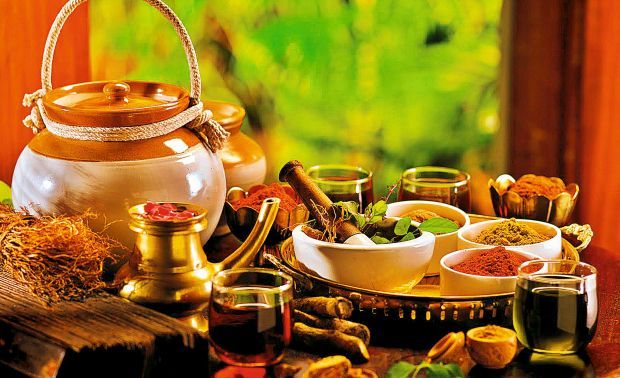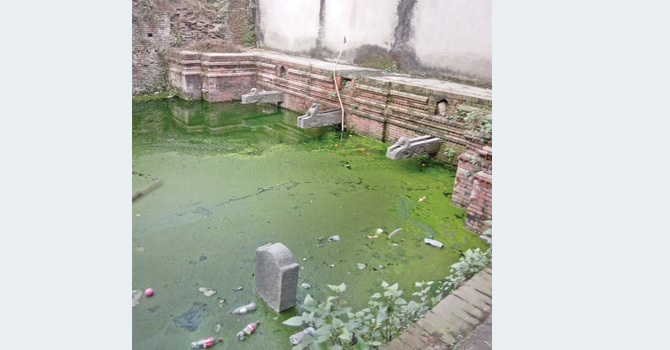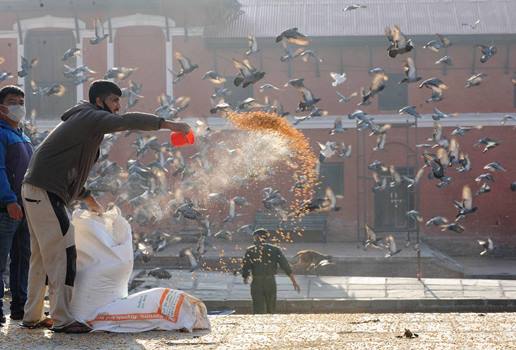Study finds Ayurvedic medicines laden with lead

By Binu Shrestha
Kathmandu, Feb. 11: Several cases of lead intoxication related with ayurvedic medicines have been reported in a host of countries, including Nepal.
A report of a case study published in The Journal of the International Federation of Clinical Chemistry and Laboratory Medicine (JFCC), showed that six of the seven widely used ayurvedic medicines have been found having inordinate amount of lead.
A seven-member team of doctors -- Vivek Pant, Keyoor Gautam, Devish Pyakurel, Aabha Shrestha, Santosh Pradhan and Neeraj Joshi -- had conducted the case study in Nepal.
According to the report, of the six medicines, Vanga Bhasma contained the most amount of lead -- 209.70 ppm (parts per million).
The World Health Organisation (WHO) has prescribed the limit at 10 ppm for lead contents in a herbal medicine.
The patients taking these medicines rarely suspect the presence of lead in them until they land in serious trouble, according to the report.
The lead concentrations in all these medicines are found to exceed the WHO-prescribed limit. As per the study, 11.18 ppm lead was traced in Prawal Pisthi, 102.53 ppm in Siddha Makara Dhvaja Guti, 12.89 ppm in Chankrashekhar ras, 11.54 ppm in Muslipak (Laghu), 13.74 ppm in Vanari and 209.70 ppm in Vanga Bhasma.
The doctors said that the ayurvedic medicines laced with herbs, metals, minerals or other materials could have detrimental effects on health if used improperly or without trained practitioner’s direction.
The presence of metals in such medicines available in the local markets are in line with the recommendations found in the ancient Ayurvedic texts. Metals are intentionally mixed with the medicine to enhance the potency of the drug.
Nepalis are increasingly fascinated with natural remedies, including traditional medicines. Ayurveda practitioners in Nepal are rigorously trained by the academic institutions licensed by the government. Although traditional medicines are abundantly used, there is little or no quality control mechanism to regulate them, they said.
A combination of factors: unrestrained use of heavy metals, lack of quality control and adding steroids to the medicines not only lowers their quality but also negatively impact the health of their consumers.
In case of Nepal, patients with chronic diseases like arthritis, asthma, hemorrhoids, insomnia, autoimmune diseases and skin diseases tend to use Ayurvedic medicines. Centre for Public Health and Environmental Development (CEPHED) has recently written a letter to the Department of Drug Administration (DDA) asking it to monitor the quality of ayurvedic medicines by enacting tougher laws and their strict enforcements.
Ram Charitra Sah, executive director of CEPHED, said that since ayurvedic medicines, which are outside the purview of regulation, are readily available, the cases of lead poisoning among those who take them might be higher than reported and that the health risks posed by the so called medicine should be discussed among the healthcare providers and awareness on them should be raised.
Besides, the government should introduce law and standards to monitor and control lead intoxication in Ayurvedic medicines, he added.
Recent News

Do not make expressions casting dout on election: EC
14 Apr, 2022
CM Bhatta says may New Year 2079 BS inspire positive thinking
14 Apr, 2022
Three new cases, 44 recoveries in 24 hours
14 Apr, 2022
689 climbers of 84 teams so far acquire permits for climbing various peaks this spring season
14 Apr, 2022
How the rising cost of living crisis is impacting Nepal
14 Apr, 2022
US military confirms an interstellar meteor collided with Earth
14 Apr, 2022
Valneva Covid vaccine approved for use in UK
14 Apr, 2022
Chair Prachanda highlights need of unity among Maoist, Communist forces
14 Apr, 2022
Ranbir Kapoor and Alia Bhatt: Bollywood toasts star couple on wedding
14 Apr, 2022
President Bhandari confers decorations (Photo Feature)
14 Apr, 2022









